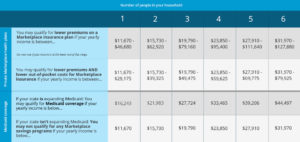by Dave Pomeroy AFM International Executive Board Member and President of Local 257 (Nashville, TN)
I think many AFM members have had their own personal “tipping point” where suddenly the value of union membership really hit home. I had been an AFM member for about a year when I played a concert with Don Williams at Giants Stadium in the Meadowlands, not long after joining his band in 1980. It was my first ever stadium gig, which was pretty amazing in itself, and Don—as always—paid us well for the show. Unbeknownst to me, the concert was being filmed. A live clip of the song “Good Ole Boys Like Me,” which was number one on the country charts at the time, was shown on a TV show called America’s Top 10 twice over two months. I got paid more than I made for playing the concert not once, but twice. From that point on, I got it. This was my first experience with the power of the paper trail, which is a direct result of the protections of working under the AFM contract.

Dave Pomeroy hands Local 257 (Nashville, TN) member Solie Fott a check for new use of a 1962 recording Fott performed on.
People ask me all the time, “What exactly does the musician’s union do?” That’s a question with a lot of answers! I reply that we represent the interests of professional musicians all over the US and Canada, followed by, “How much time do you have?”
If it is more than a casual inquiry, I try to ask a few questions to find out what their areas of interest and expertise are and what ambitions and goals they might have. I can then focus on the most applicable aspects of AFM membership to their situation.
These days it’s not uncommon for young musicians to have multiple skills from songwriting, engineering, and arranging to playing a plethora of instruments very well. Many, if not most, musicians these days are making money from numerous revenue sources, some of which are smaller than they used to be. In a constantly evolving music industry, it’s essential not to leave any potential income from your musical performances on the table. That is where the power of the paper trail works in your favor in a number of ways.
Virtually all AFM media contracts have a pension component. Pension is not something you think about much when you are young, but as someone who just turned 60, I am grateful to know that I’ll have “mailbox money” to look forward to after many years of being a working bass player. In addition, new use and re-use provisions ensure you will get paid every time your work is used in a new medium such as TV, film, and commercials.
For example, last month, a violinist named Solie Fott, a delightful man and a 70-year AFM member, came into the office to pick up a re-use check for the Patsy Cline record “Back In Baby’s Arms,” which was recorded September 10, 1962, under an AFM contract. The song was used in a Mazda commercial and he and 11 other musicians (or their beneficiaries) have received more than 10 times what the scale was when the record was made more than 53 years ago.
Without the paper trail, we would not have been able to get this payment for him. As our digital database of session information expands, it facilitates our ability to track the new uses of existing and future recordings. When you work nonunion, what you make that day is all you ever make, and you have given away your intellectual property forever. Make sure you work under an AFM contract to maximize your potential revenue streams in every way possible.



